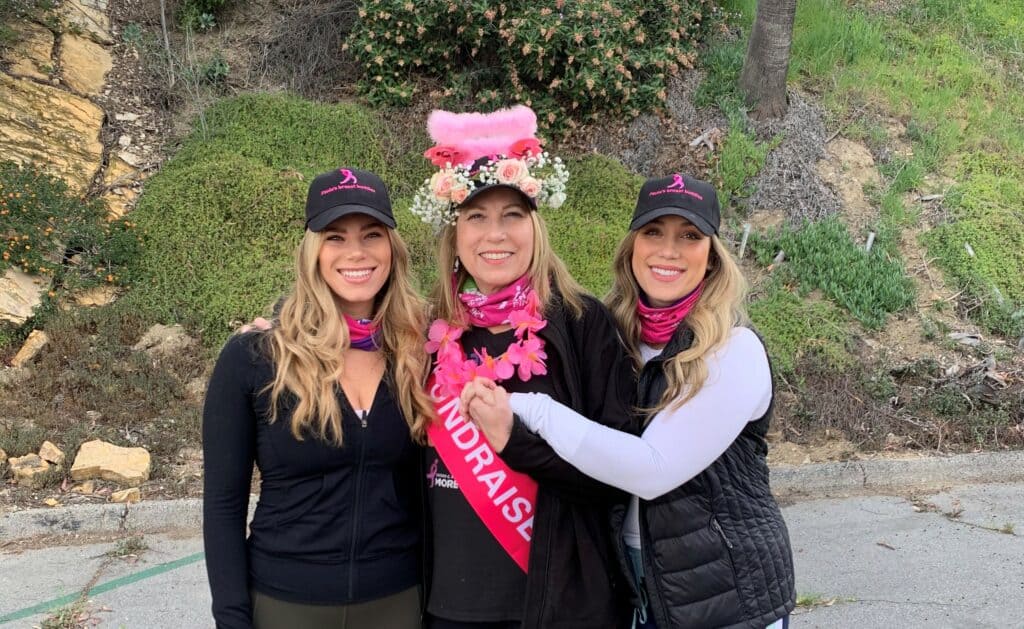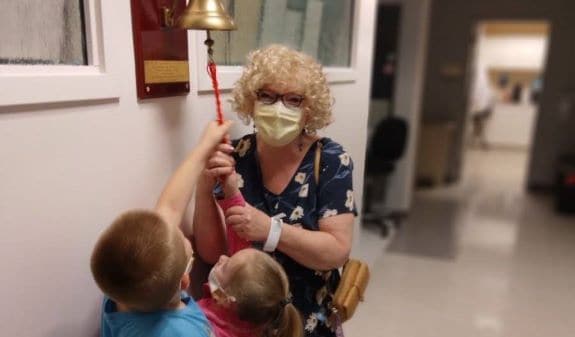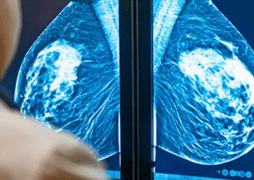
By Paula Schneider, President & CEO, Susan G. Komen
Cancer doesn’t know the first thing about convenience. In 2007, I was in the middle of a massive re-org as CEO of a leading fashion company when my doctor told me the news that would change my life forever.
I had triple negative breast cancer – which by the way meant, there were three types of cancer they had better treatment for than mine. “This will be rough, but we’ll get you through it,” my doctor encouraged.
My first reaction? “Can I wait three weeks to start treatment so I can wrap up some things at work? Or will I die?”
Perhaps not the most common reaction my doctor had heard in his career. But he gave me his blessing, warning me not to wait any longer than that, so I dove back into work to finish a few major projects before starting treatment.
Again, not the most convenient time to receive life-altering news!
Even after starting chemotherapy, I still attempted to power through – that is, until I couldn’t. I’d go in for chemo on Thursday, and I wouldn’t remember a thing from a meeting I had the following Tuesday.
I didn’t see this coming.
Not only did the treatment take a significant physical toll on me, but that chemo brain fog was a huge barrier and concern. This is when I truly realized life was going to be different.
I worried often, “What if I don’t get my mental acumen and memory back? I have to work and support my family, run my company.” But eventually, once that initial sting of it all began to wear off, all I wanted was to stay alive – and everything else paled in comparison.
Little fires everywhere
“Don’t sweat the small stuff” is not just a book we all read in the late 90s. It’s one of the biggest life and career lessons learned during my cancer journey.
I remember as I left a particularly high-profile turnaround job at a company, I half-jokingly told the team: “You need to find someone who has had cancer to take this over next.” Why? Because once you’ve experienced something so personally challenging and devastating against your control, you start to sit comfortably around a thousand fires burning at once, and you can remain perfectly calm.
That memo that went out two days late, or that board presentation that fell a little flat; none of those things were going to cure cancer. That’s the small stuff – and most things are just “stuff” at the end of the day.
Often times, people who experience some sort of tragedy, loss or illness in life, it changes them for good. A lot of people hit the reset button after cancer. Divorces, job changes, life changes. For me, I didn’t want a new family or job, or to run off to become a monk and rewrite my entire life. I just wanted my old life back.
The magic of grace
One night during my chemo run, I was helping my daughter with a computer project. I couldn’t even tell you why now, but I snapped at her during our conversation – merely because I just felt lousy. She turned to me, and with the quick wit to ground me immediately, said: “What’s the matter, did someone spit in your chemo?”
I’ll never forget it. It was hilarious and revealing all at once.
Everyone around me was reacting differently to my diagnosis. My youngest daughter wanted to see every stitch on me, while my oldest daughter found it hardest to see me sick. Frankly, it’s tough for family and friends to accept the “new you.” And with kids especially, you have to appreciate and understand how they experience crises differently.
But this is where you need to give each other a little grace. You’ll work with so many different personalities at the office, and you’ll learn that even in your own family dynamic, there’s a wide spectrum of comfort and willingness to deal with crisis head-on. Some people don’t know what to say, others may not say the right thing at the right time, but most people mean well and we’re learning as we go, together.
And most of all, as my daughter exemplified so well, you must lead with kindness and HUMOR. Everyone, and I mean absolutely everyone, is dealing with something behind closed doors. Understand where they’re coming from. Especially today, people find themselves afraid to be vulnerable given how polarizing society can feel. But leading with kindness, empathy and humor, you find joy in the every-day.
There are a lot of changes to the psyche after cancer. And as a leader at the office and caretaker at home, it took a great deal of personal work to accept the help I needed gracefully. People don’t talk about that part of the journey enough.
You have no choice but to be vulnerable and lean on others for help.
Put your oxygen mask on first
One of our greatest roles at Susan G. Komen is the patient advocacy work we do for those who cannot advocate for themselves. Being your own health advocate is not always possible, but it’s so vital to your survival no matter what health challenges you face.
When I was first diagnosed with breast cancer, I had to flat-out fire one of my doctors.
I remember asking the doc, “Do you feel like you can cure me?”
“Well, I don’t know…” they responded.
“Well, if you don’t think there’s a significant opportunity for me to live through this, then you’re not the right doctor for me. I have to believe I’ll be ok and need someone who supports me.”
So, I went with the best doctors I could find, who felt their work would be beneficial. “We’ve had really strong results with the treatments we plan on giving you.”
That’s more like it.
You have to feel that same emotional connection, that same optimistic mindset that yes, I’m going to beat the crap out of this cancer, and I need my doctors to believe that I can too.
When life feels turbulent at times like these, you must put your own oxygen mask on first. If you’re not caring for yourself, you can’t properly take care of others either.
There’s so much talk about being a strong warrior-type figure during your cancer journey, but in the true midst of it, you feel the least physically powerful of your life. That’s a hard concept to swallow when you’re leading teams at work and raising a family.
You must navigate your new normal. Whether that means at home, with friends, at your job, in the grocery store, walking the dog or generally, in how your relationships evolve after cancer.
And this can take quite a while.
But again, most importantly, you need to find the grace to be patient with yourself as you heal, and then can begin taking care of others around you again without jeopardizing your own wellness.
What now?
My story is only one of the countless examples of how breast cancer, in a single moment, changes your life forever. Throughout the year, and especially now as National Breast Cancer Awareness Month approaches, I’m honored for Susan G. Komen to tell more of these stories of rockstar patients and survivors all over the country.
Moving forward, I look forward to sharing more of my experience on the Komen Perspectives section of Komen’s blog, and I invite you to share YOUR story with Komen as well.



